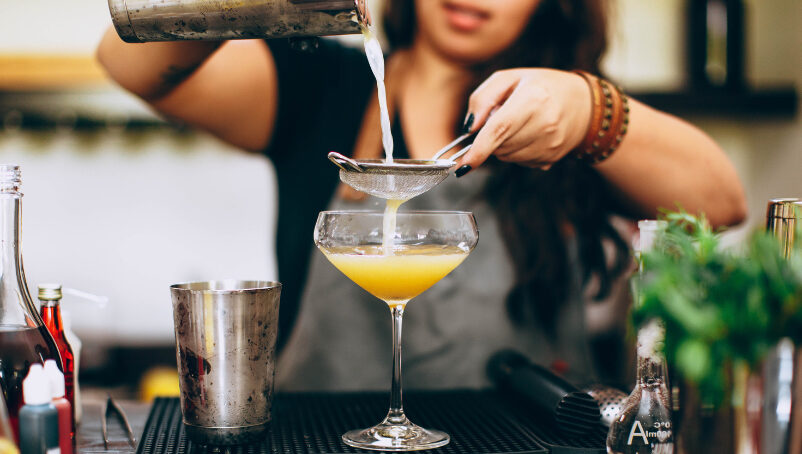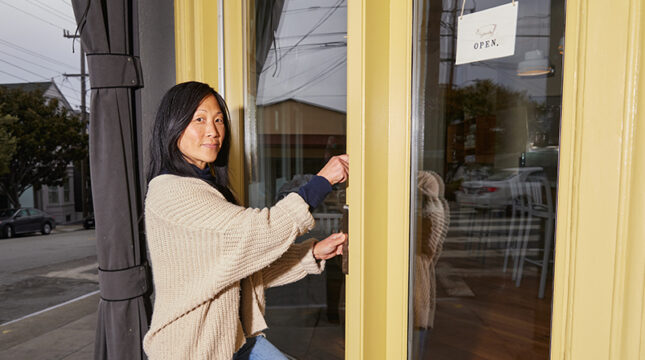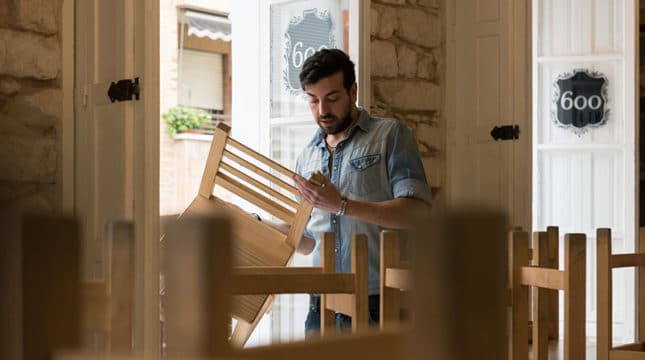Do you need an Oklahoma liquor license to sell alcohol?
In Oklahoma, if you’re interested in opening a food service business that also sells alcohol, you must have a license issued by the Oklahoma Alcoholic Beverage Laws Enforcement (ABLE) Commission. You may also need to apply for an additional permit from the city or county where you plan to do business.
The state of Oklahoma allows the sale of alcohol from 8:00 AM to 2:00 AM Monday through Saturday for consumption on-premise or off-premise. However, retail spirits stores can only be open from 8 AM to midnight. Sunday and holiday sales are at the discretion of each county.
ABLE offers different liquor licenses depending on what type of business you own and what type of beverages you plan to sell. For food service establishments, most companies apply for a beer and wine license or a mixed beverage license.
A beer and wine license allows restaurants, cafes, coffee shops, and other establishments to sell beer or wine up to 15% alcohol by volume, according to the Oklahoma Alcoholic Beverage Control Act. A mixed beverage license allows food service establishments to sell any beverage, regardless of alcohol by weight or volume.
How to get a liquor license in Oklahoma
Getting a liquor license in Oklahoma can require a bit of prep work. Here’s what to do before, during and after applying.
Before you apply to ABLE
- Publish a “Notice of Intention to Apply for an Alcoholic Beverage License” in your local paper twice within two weeks.
- Obtain a Certificate of Compliance from the city or county you plan to do business in, stating that the location of your establishment meets all local codes and regulations.
- Purchase Oklahoma general liability Insurance for your business.
When you apply to ABLE
- Be sure to fill out all forms completely and truthfully.
- Include all required documents, including proof of publication, Certificate of Compliance and insurance certificate. You’ll also need to submit a copy of your deed, lease, management agreement or sales contract, county tax statement and establishment diagram.
- Pay the application fees.
After applying to ABLE
- Check with your local city or county for any additional licenses or permits you may need to open your business.
ABLE liquor licenses last for one year. When it comes time to renew, you get a slight price break compared to the initial cost. The fee is $450 to renew your beer and wine license and $905 for the mixed beverage license.
How much is a liquor license in Oklahoma?
ABLE charges $525 for a beer and wine license and $1,030 for a mixed beverage license. Both licenses are valid for one year.
Because the city or county you open your business in may require you to obtain a license from them, you may face additional fees. For example, if you’re looking to start a beer and wine cafe in Oklahoma City, it’ll cost you $500 for the initial year and $450 for each renewal. Or, if you want to offer a full bar in your restaurant, a mixed beverage license in Oklahoma City will run you $1,005 for the first year and $905 to renew.
On the other hand, in Broken Bow, Oklahoma, the city only charges a $75 per year fee for a business license.
Be sure to check with your local government for any additional licenses once you’ve been approved by ABLE.
How long does it take to get a liquor license in Oklahoma?
It generally takes around 30 days to receive your liquor license from ABLE. However, before you can get your liquor license, you must get a Certificate of Compliance and proof of publication, which tacks on time.
To be licensed by ABLE, you’ll need a Certificate of Compliance from the city or county. This confirms that your business meets all local zoning, fire, safety, and health requirements.
In addition, before applying, you must publish a “Notice of Intention to Apply for an Alcoholic Beverage License” in a local paper twice over the course of two weeks.
Insurance for an Oklahoma liquor license
The following types of business insurance are recommended for anyone who has a food and beverage business in Oklahoma:
Liquor liability insurance
While there are no dram shop laws in Oklahoma, if one of your employees accidentally sells alcohol to someone under 21 or doesn’t notice how intoxicated a patron is, you could still be held responsible for their actions. Liquor liability insurance can help cover your costs, court fees, and medical bills should an event like that come to pass.
General liability insurance
Getting general liability insurance is required as part of the ABLE application process. Make sure you have proof of coverage before you apply.
Workers’ compensation insurance
Nearly every employer in Oklahoma is required to have workers’ compensation insurance. Without it, your business could face penalties of up to $1,000 per day for lack of compliance.
Commercial property insurance
Whether you lease or own the building you plan to do business in, should something happen to it, commercial property insurance not only helps with the cost of fixing the building, but it can pay for lost revenue while you’re closed for remodeling.
Oklahoma liquor license requirements
To get a liquor license in Oklahoma, the building you plan to operate out of must be completely built or within 60 days of completion of construction when you apply. You must also provide the property’s deed, lease, management agreement or sales contract with your application.
Oklahoma requires you to submit a Certificate of Compliance. This might involve your local county commission inspecting your place of business and determining that all building codes are in compliance or are not required.
You’ll also need a Tax Statement from the County Treasurer’s office stating you owe no real or personal property taxes.
Lastly, you must provide a certificate of liability insurance showing your business has coverage for both bodily injury and property damage.
Can an Oklahoma liquor license be transferred?
Liquor licenses cannot be transferred between people or businesses in Oklahoma. One can be transferred from location to location if you decide to move your business.
The transfer process is similar to applying for a new license but is usually much quicker. You must publish a notice in a local paper, obtain a Certificate of Compliance for your new location, provide a deed, lease, management agreement, or sales contract, supply a location diagram, and show proof of liability insurance.
If ABLE approves everything, they will transfer your existing license to your new location. For most types of Oklahoma liquor licenses, there is no transfer fee.
Oklahoma liquor license liability and dram shop laws
Oklahoma is not a dram shop liability state. This means businesses aren’t automatically responsible if they serve alcohol to a patron who then causes harm while intoxicated.
However, Oklahoma courts have held that injured parties can sue establishments if they serve patrons younger than 21 or those who are noticeably intoxicated and later cause harm.
This is to say, just because Oklahoma doesn’t have dram shop laws, it doesn’t mean you’re totally off the hook for your customers’ actions, so it’s smart to have insurance that covers those liabilities.
Any employee participating in the “service, mixing, or sale” of alcoholic beverages in Oklahoma must get an employee license through ABLE. In addition, any manager of an establishment that sells alcohol must also have an employee license, even if they never touch the stuff.
Once employees receive their license, they have 14 days to complete a server training program approved by ABLE.
How NEXT helps support Oklahoma bar and restaurant owners
NEXT offers customized insurance on tap. We offer liquor liability insurance alongside our general liability coverage to help protect your bar, restaurant or small business serving alcohol.
Get a quote online, review your coverage options, purchase insurance, and have your certificate of insurance in about 10 minutes.
Start a free quote with NEXT.






